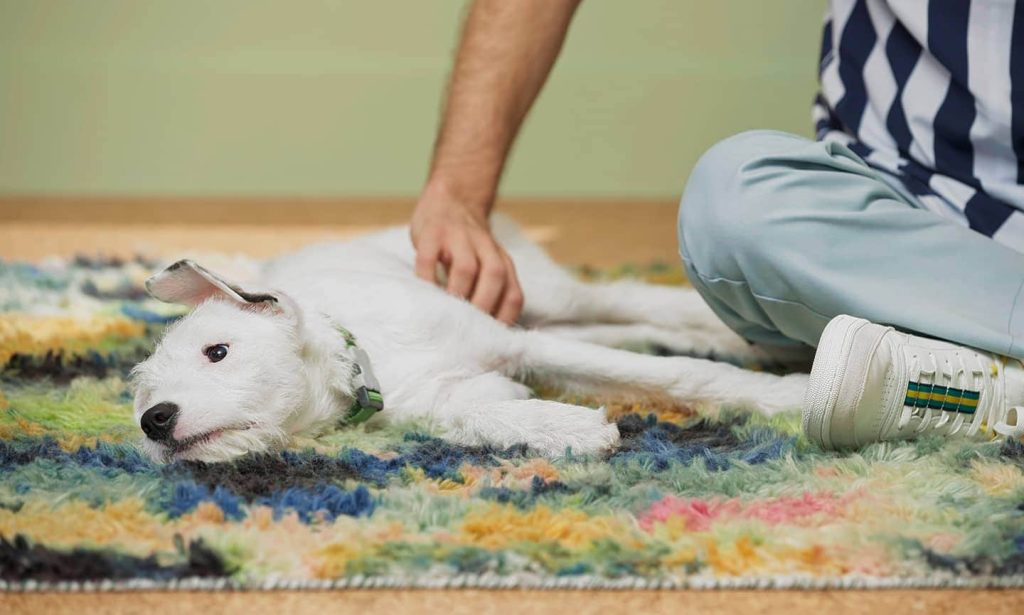Puppy Socialization Techniques: Preparing Your Pet for the World

The Importance of Early Puppy Socialization
Bringing a puppy into your home is an exciting adventure, but with that excitement comes a significant responsibility. Understanding the role of puppy socialization techniques is crucial for your new furry friend’s development. Socialization during early life stages prepares your pet for the world beyond your front door and influences their long-term behavior.
Socialization can take many forms and is not a one-size-fits-all approach. It involves:
- Exposure to various environments: Bringing your puppy to different locations such as parks, pet-friendly stores, or even different neighborhoods can significantly broaden their world view. Such outings help them learn how to respond to new stimuli, from the sounds of traffic to the sights of bustling crowds.
- Meeting different people and animals: This is perhaps one of the most enriching aspects of socialization. Allowing your puppy to interact with individuals of all ages, including children and the elderly, as well as other dogs, prepares them for future encounters. These interactions teach your pup how to behave appropriately regardless of the situation.
- Encounters with diverse sounds and experiences: Whether it’s exposure to the vacuum cleaner, the ringing of bells, or the sounds of construction, getting your puppy familiar with different sounds can help reduce fear and anxiety. This is especially important for sensitive breeds who might be prone to noise phobias.
Statistics indicate that well-socialized puppies are less likely to develop behavioral issues such as aggression or anxiety later in life. For instance, a study published in the Journal of Veterinary Behavior found that dogs that underwent socialization training during their critical early months displayed fewer anxiety-related issues as adults. This underscores that early socialization is not just beneficial but essential for a happy, healthy dog.
A guiding principle is to commence socialization in the first few months of your puppy’s life, ideally before they turn 14 weeks old. By engaging in structured classes, attending puppy socialization groups, or arranging playdates with other vaccinated puppies, you can help your pet gain confidence in interacting with their environment. These methods offer incredible opportunities for learning and adaptation, influencing how your dog will behave as an adult.
In the following sections, we will delve deeper into effective puppy socialization techniques, valuable tips, and common pitfalls to avoid. Prepare to embark on a journey that will enhance not only your puppy’s life but yours as well. By investing time in proper socialization techniques, you’ll be paving the way for a well-behaved companion that can thrive in any setting.

DISCOVER MORE: Click here to learn how adopting rescued animals can change lives
Essential Techniques for Successful Puppy Socialization
Socializing your puppy is more than just a series of playful encounters—it’s a vital part of their development that sets the stage for their future behavior. Understanding effective puppy socialization techniques can empower pet owners to provide their dogs with the tools they need to navigate the complexities of the world around them confidently. Here, we explore some key methods that can make the process of socialization both fun and effective.
1. Structured Puppy Classes
One of the best ways to initiate your puppy’s socialization journey is through structured puppy training classes. These classes are often led by experienced trainers and are specifically designed for young dogs. Here, puppies can meet others in a controlled environment while learning basic commands and manners. Benefits of attending puppy classes include:
- Professional Guidance: Trainers can provide expert insights into dog behavior, allowing owners to better understand their pet’s social needs.
- Exposure to Different Breeds: Interacting with a variety of breeds can help your puppy learn appropriate social cues and behaviors.
- Controlled Environment: The structure of classes provides a safe space for puppies to play and engage without the intimidation of unpredictable adult dogs.
2. Playdates with Vaccinated Puppies
Arranging playdates with other vaccinated puppies can be an effective way to promote social skills. In these informal settings, puppies can engage in natural, playful interactions. Such experiences allow them to discover body language and appropriate play behaviors. During playdates, it’s crucial to monitor interactions to ensure that the experiences remain positive and stress-free. Be attentive to:
- Overstimulation: If the play becomes too rough, intervene to prevent any negative experiences.
- Timely Introductions: Introduce your puppy to new friends gradually, especially if they are anxious or reserved around new dogs.
- Positive Reinforcement: Reward your puppy with praise or treats during positive interactions to reinforce good behavior.
3. Local Adventures
Taking your puppy on local excursions is another enjoyable way to facilitate socialization. This includes visits to places like dog parks, dog-friendly cafes, or even pet supply stores. These outings expose your puppy to new smells, sights, and sounds, all while having the opportunity to meet new people and other dogs. Make these excursions constructive by:
- Starting Slow: Choose quieter times for your outings, gradually increasing the level of stimulation as your puppy becomes more comfortable.
- Maintaining Safety: Use a leash and harness for control, especially in busy environments.
- Offering Breaks: Provide your puppy with opportunities to rest if they seem overwhelmed.
Employing these puppy socialization techniques lays the foundation for a well-adjusted adult dog. Remember, the goal is to create positive experiences that encourage your puppy to embrace the world around them. As you engage in socialization, be patient and consistent, ensuring that each experience builds their confidence and prepares them for future adventures. In the sections that follow, we will explore more specific strategies and answer common questions surrounding the socialization process.
| Socialization Experiences | Importance |
|---|---|
| Exposure to Various Environments | Promotes adaptability and confidence in new situations. |
| Interacting with Other Animals | Encourages proper communication and behavioral skills. |
| Meeting Different People | Reduces fear and anxiety around strangers. |
| Exposure to Sounds and Sights | Helps in desensitizing your puppy to daily noises. |
Socialization is a vital aspect of raising a well-rounded puppy. The first few months play a critical role in shaping a puppy’s personality and behavior. By implementing puppy socialization techniques, you can create enriching experiences that will benefit your pet throughout its life. For instance, purposely exposing your puppy to various environments, sounds, and sights can lead to a more adaptable and confident dog. Moreover, interactions with other animals are essential as they teach your puppy the nuances of canine communication. This interaction helps them understand body language and acceptable behavior, reducing aggressive tendencies in adulthood. Equally significant is meeting different people at a young age. This not only minimizes the chances of fear-related issues later on but also fosters a friendly demeanor towards strangers. Through careful and structured socialization efforts, you can prepare your puppy to face the world boldly and enjoy a fulfilling life.
DIVE DEEPER: Click here to discover how pets can enhance your well-being
Expanding Your Puppy’s Horizons
In addition to structured classes and organized playdates, there are several other creative methods you can implement to further enhance your puppy’s socialization experience. Each technique offers unique opportunities for growth, helping your puppy become a well-rounded companion ready to face the world.
4. Gradual Exposure to Different Environments
One of the most potent puppy socialization techniques is exposing your puppy to a plethora of environments. Whether it’s bustling city streets, quiet suburban neighborhoods, or serene parks, a variety of locales can help teach your puppy how to respond to different stimuli. To facilitate this process:
- Scenic Walks: Take your puppy on walks that vary in scenery to introduce them to different sights and sounds, such as children playing, cars passing, or leaves rustling.
- Public Transport: If you live in an urban area, consider taking your puppy on public transportation. This exposure teaches them how to behave in suspenseful situations, such as crowded spaces.
- Local Events: Attend community events, fairs, or pet-friendly gatherings, where your puppy can encounter new people and animals while being a part of the action.
Above all, take care to ensure your puppy feels safe and comfortable. Frequent breaks should be given to help your pet acclimate to new environments.
5. Desensitization Techniques
Desensitization is a crucial aspect of puppy socialization that can help prevent fear-based behaviors later in life. Start by introducing your puppy to mildly stressful situations or objects, such as vacuum cleaners or bicycles. The goal is to create positive associations with these stimuli. Consider the following tactics:
- Controlled Introductions: Begin with the object or situation at a distance, allowing your puppy to observe without feeling overwhelmed. Gradually decrease the distance as they become more comfortable.
- Counter Conditioning: Pair the potential stressor with treats or praise. For instance, if your puppy shows interest in a vacuum cleaner, reward them for remaining calm as they explore it.
- Slow Progression: Increase the intensity of the experience gradually. If your puppy fears loud noises, expose them in a controlled way, strengthening their resilience.
By using desensitization, you’re effectively building your puppy’s confidence to confront situations that may initially incite fear.
6. Socialization with People
While puppies typically thrive in the company of other dogs, socialization with humans is equally significant. Different people have varied appearances, voices, and scents, and normalizing these encounters can help foster a puppy’s adaptability. Incorporate human interaction into your socialization strategy by:
- Inviting Friends Over: Arrange for friends or family to visit your home, allowing the puppy to meet different individuals in a familiar setting.
- Engaging with Strollers: Walk with your puppy in environments where families are present; this helps introduce them to children, individuals with disabilities, and other diverse demographics.
- Respecting Boundaries: Ensure that the people your puppy meets engage at their comfort level. Encourage calm interactions, and never force an encounter.
Each successful interaction reinforces your puppy’s comfort levels and ensures they grow into well-adjusted adult dogs.
As you continue your journey in employing these puppy socialization techniques, remain observant and patient. Each puppy has its unique pace, and a tailored approach to socialization can lead to a well-balanced, confident canine companion ready to embrace life’s adventures. In the next section, we will delve into troubleshoot strategies for common socialization challenges that owners may encounter.
DISCOVER MORE: Click here to learn how pets can boost your health
Conclusion: The Path to a Well-Socialized Puppy
Successfully navigating the journey of puppy socialization techniques is one of the most rewarding responsibilities a pet owner can undertake. By employing a combination of creative experiences, gradual exposure to various environments, and positive interactions with people and other animals, you set the stage for a future filled with confident behaviors and harmonious relationships. The techniques discussed not only prepare your furry friend for the intricacies of the world but also enrich their emotional and psychological growth.
As you embark on socializing your puppy, remember that patience is paramount. Each puppy is an individual, and their timeline for comfort and adaptation may differ. Observe their responses and adjust your methods accordingly to prioritize their safety and happiness. Moreover, engaging your puppy in diverse settings—from neighborhood walks to community events—provides invaluable lessons that shape their responses to the unpredictable stimuli they will encounter in life.
In summary, the foundation of effective puppy socialization is built on exposure, positive experiences, and respect for your pet’s limits. With thoughtful implementation of these strategies, your puppy will not only grow into a well-adjusted adult dog but also a joyful companion ready to face the world alongside you. Continue to foster these socialization practices throughout your dog’s life, ensuring they remain a friendly, adaptable member of the community. As you prepare your pet for the big, exciting world ahead, rest assured that your efforts will lead to a lifetime of shared adventures.



